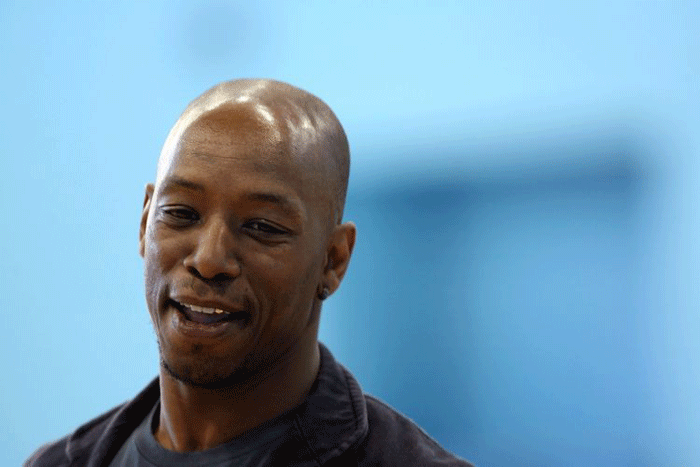Passed/failed: An education in the life of Ian Wright, footballer and broadcaster
'I was told that I was thick'

Ian Wright MBE, 44, played football for Crystal Palace, Arsenal and England. He is now a television pundit and columnist and has launched the 2008 Fitter Schools UK Challenge; applications to take part should be made by the end of March ( www.fitterschools uk.com).
Very early on, at Gordonbrock Primary School in Brockley, south-east London, I remember playing in the little playground and missing my brother, who I could see through the fence in the big playground. I always wanted to play in the big playground!
When I was seven, we moved to the Honor Oak Estate, a short distance away from Brockley, where I joined the second year at Turnham Primary School. It was at Turnham that I realised for the first time that I was good at something. Sport was the main focus at the school, but my football ability brought about some problems.
When you join a school halfway through, the girls take notice of the new guy and it becomes a fight for attention. There was a guy on the estate who was a good footballer. He was all right on the block, but when we got to school, he changed. The bullies like him were jealous – it was a football mafia – and I had to have a couple of fights.
At home, I didn't get on with my step-dad and was disruptive at school. I found maths difficult and was teased by people who found it easy. They'd tell me "You're thick!" – that's the reason I was so disruptive. It was my way of dealing with it. They used to send me out of the classroom to Mr Pigden's – which was brilliant. Sidney Pigden was a great teacher, my mentor and my major, main man. I did lessons with him in his room next to the library and he gave me the confidence I needed and I ended up becoming a monitor. I admit I wasn't always an angel, but my only real problems were at the start. I enjoyed my time at Turnham.
The first day at Samuel Pepys Comprehensive [later renamed Hatcham Wood] was different. This time round, I wasn't the new boy joining halfway through term. Everyone was on the same level. It was amazing: we hadn't mixed with people from New Cross, Peckham and Deptford before, but now we were, and I loved them.
I still struggled with maths, but tried hard not to be so disruptive. Mr Dixon was a brilliant English teacher. He had some sort of acting background and when he read to us he did all the voices. I was very good at French; I could mimic people very well, which may have helped with my confidence. Sport was great and I was in all the teams: football, cricket and basketball, which the school was very good at.
When I was 14, I ran away from home and went to live with a friend; yes, my mother knew where I was. I didn't do well at GCSEs. In fact, I didn't even take my mock exams and didn't do enough homework or revision. I left at 15. My mother was very disappointed.
I know that if I had my time at school again, I'd do it differently. I drum it into my own kids how important education is. I say, "Just work hard and get on with it!" I was lucky and able to get into sport, but otherwise I'd probably have had a life of manual labour.
I didn't get into professional sport at 16, like most did. From the age of 12, I had been writing to all the London football clubs. I went for trials, but they always said that I wasn't tall enough, or whatever. Well, I'm tall enough now! It was just an excuse. It's hard to take; before I got my break at 22 I was just playing Sunday football.
We're trying to get 5,000 schools involved in the 2008 Fitter Schools UK Challenge. I think there are more distractions now, more things to do than when I was at school; we had to do running about and stuff!
Join our commenting forum
Join thought-provoking conversations, follow other Independent readers and see their replies
Comments
Bookmark popover
Removed from bookmarks